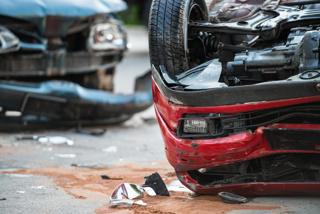The Royal Society for the Prevention of Accidents says new plans for halving road deaths across the European Union should be an added catalyst in the bid to improve safety on the UK’s roads.
Figures contained in the European Commission report show that in 2009, the UK was the Member State with the lowest road fatality rate by population – at 38 fatalities per million inhabitants. This figure had fallen by 35 per cent from 61 fatalities per million inhabitants in 2001 – also a year in which the UK had the lowest level of road fatality among Member States.
RoSPA says the UK should not become complacent, however, and that it should strive to set a good example throughout the next decade.
In a recent publication, called European Road Safety Policy Orientations for 2011-2020, the European Commission outlines seven strategic objectives: improved safety measures for trucks and cars; building safer roads; developing intelligent vehicles; strengthening licensing and training; better enforcement; targeting injuries; and a new focus on motorcyclists.
The policy follows the EU’s current 2001-2010 Road Safety Action Plan, which aimed to halve road fatalities from 50,000 to 25,000. The Commission reports that this target has “not been completely met” but that, by the end of the plan period, a fall of more than 40 per cent is expected.
In 2009, more than 35,000 people died on the roads of the EU, of whom 2,337 were killed in the UK. For every death, there are an estimated four permanently disabling injuries, 10 serious injuries and 40 minor injuries.
Kevin Clinton, RoSPA’s head of road safety, said: “Moving forward together on road safety is good for the EU. States have much they can learn from each other. Given its position as a road safety leader, the UK can share a lot from its experience, but we must remember that there are important lessons for us too.
“Although a great deal of progress has been made since 2001, it would be wrong to see road safety as a ‘job well done’. More than 35,000 people died in road accidents across Europe last year, and stark figures like these must spur us on to greater achievement in the future.
“Today’s publication contains some good ideas, including the strengthening of cross-border procedures for dealing with driving offences. Measures related to technological developments are also welcome. These include making electric stability control and seatbelt reminders mandatory and forthcoming proposals for new technical specifications for ‘smart technology’, which facilitates the sharing of data such as real-time information on speed limits, traffic flows and congestion.”




















Login to comment
Comments
No comments have been made yet.